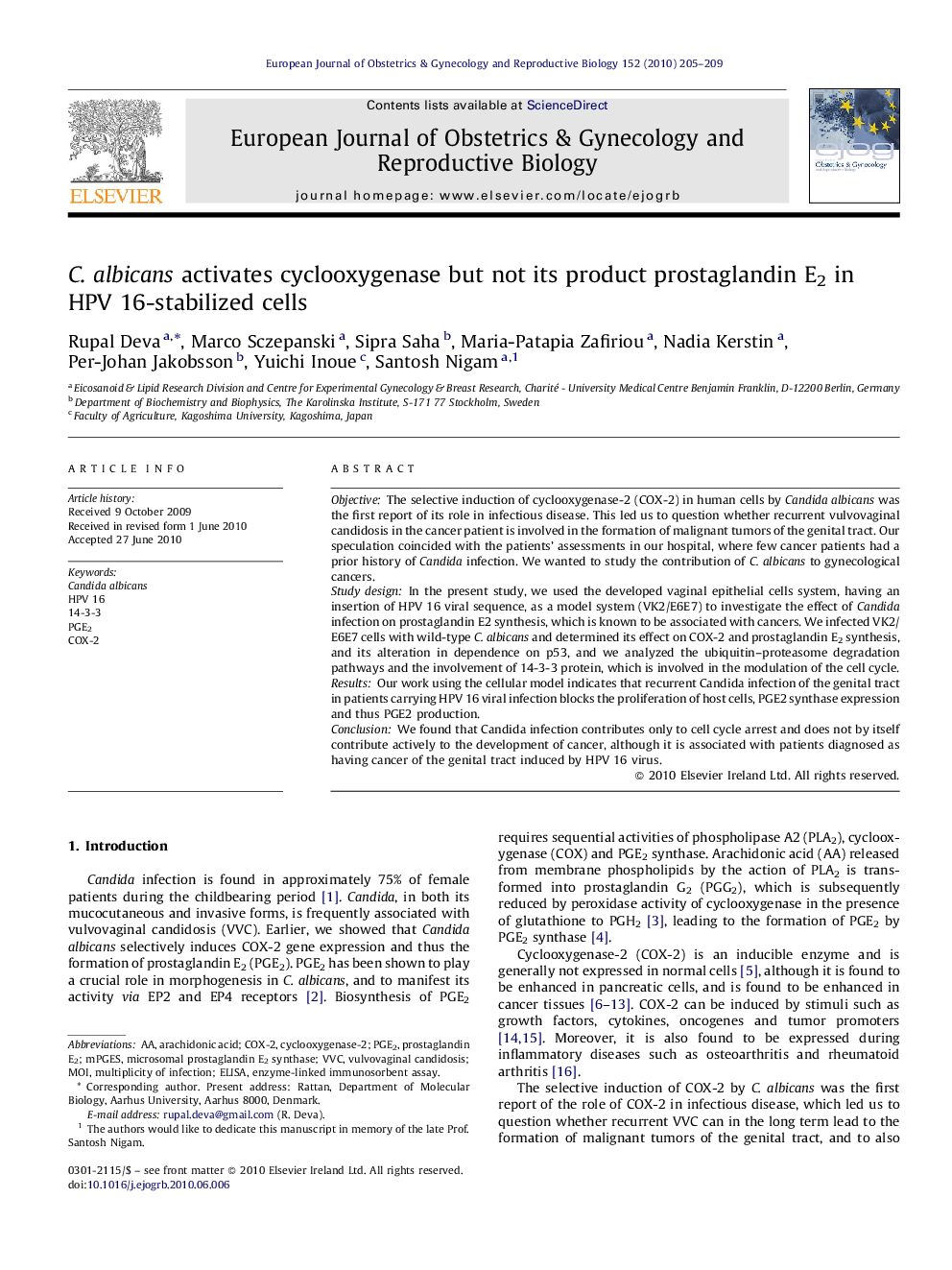| Article ID | Journal | Published Year | Pages | File Type |
|---|---|---|---|---|
| 3921115 | European Journal of Obstetrics & Gynecology and Reproductive Biology | 2010 | 5 Pages |
ObjectiveThe selective induction of cyclooxygenase-2 (COX-2) in human cells by Candida albicans was the first report of its role in infectious disease. This led us to question whether recurrent vulvovaginal candidosis in the cancer patient is involved in the formation of malignant tumors of the genital tract. Our speculation coincided with the patients’ assessments in our hospital, where few cancer patients had a prior history of Candida infection. We wanted to study the contribution of C. albicans to gynecological cancers.Study designIn the present study, we used the developed vaginal epithelial cells system, having an insertion of HPV 16 viral sequence, as a model system (VK2/E6E7) to investigate the effect of Candida infection on prostaglandin E2 synthesis, which is known to be associated with cancers. We infected VK2/E6E7 cells with wild-type C. albicans and determined its effect on COX-2 and prostaglandin E2 synthesis, and its alteration in dependence on p53, and we analyzed the ubiquitin–proteasome degradation pathways and the involvement of 14-3-3 protein, which is involved in the modulation of the cell cycle.ResultsOur work using the cellular model indicates that recurrent Candida infection of the genital tract in patients carrying HPV 16 viral infection blocks the proliferation of host cells, PGE2 synthase expression and thus PGE2 production.ConclusionWe found that Candida infection contributes only to cell cycle arrest and does not by itself contribute actively to the development of cancer, although it is associated with patients diagnosed as having cancer of the genital tract induced by HPV 16 virus.
